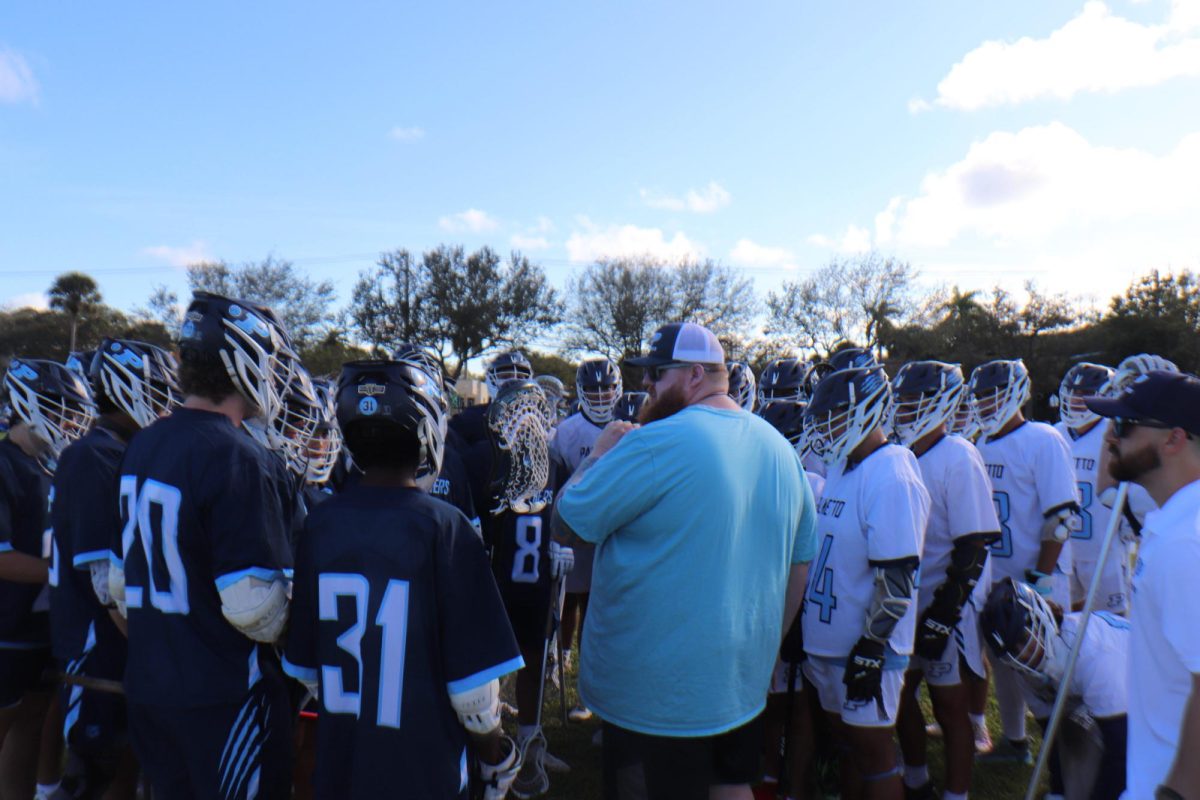A Guide to Voting in 2020
September 18, 2020
On Nov. 3, eligible Americans will head to the polls to vote. To help make sure they get there with no troubles, this is The Panther’s 2020 Voting Guide.
How to Register
In the state of Florida, one can register to vote online and by mail. To register online, visit the Florida Department of State’s website. When submitting an application one must provide a Florida Driver’s License or Identification (ID) Card, the issued date of your driver’s license or ID and the last four digits of one’s Social Security Number. If a resident does not have a driver’s license or ID card, they can still register by mail. To register by mail, residents can access a Florida voter’s registration form on the Florida Department of State’s website. Once completed, the form must be sent to a local election official. Local election officials can be found on this PDF. Florida residents have until Monday, Oct. 5 to register to vote in November’s election.
The Polls during COVID-19
With the ongoing pandemic, many voters are unsure about what the polls might look like this year. To help reduce the spread of the virus, registered voters may apply for absentee ballots and request vote-by-mail ballots.
A state-by-state analysis showed that 76% of Americans were eligible to vote by mail in the election, and predicted that 80 million ballots could be cast by mail. In the Pinecrest community, vote by mail (VBM) ballots are becoming very popular.
“Pinecrest often has voter turn-out above 80% in a presidential election year, and I expect turn-out to be as high as ever,” Village of Pinecrest councilmember Anna Hochkammer, who is running for re-election this year, said. “I expect more people than ever will vote by mail. Last I checked, over 6,000 of Pinecrest’s 13,000 voters had requested a VBM ballot.”
However, due to limitations of the United States Postal Service (USPS) in some parts of the country, some voters still consider going to the polls to be more effective. In these cases, the Centers for Disease Control (CDC) sent out guidelines for what people should do at the polls to ensure their safety.
Presidential Elections Explained
The United States’ Presidential Election takes place every four years in Nov. Before the general elections, state primary elections and caucuses take place. These primaries and caucuses allow citizens to choose the political party nominees for President.
In the general presidential election, eligible voters in all of the 50 states vote for one President and one Vice President. When citizens vote for the President, in reality, they vote for a group of people called “electors.” Electors represent one vote in the Electoral College. In this system, each state has a certain number of electors based on their representation in Congress. The Electoral College makes up a total of 538 votes and a presidential candidate must win 270 of those votes to become the President. If no candidate receives 270 votes, each member in the House of Representatives votes until one has the majority.
Due to all the uncertainty surrounding the candidates in the upcoming election, the Electoral College is one of the most important aspects of the voting process.
“I think this year the Electoral College is the most important thing to understand because I think a handful of states — Florida, Michigan, Wisconsin, Pennsylvania, Arizona and maybe a few others — will decide the election,” AP United States Government and Politics teacher Kenneth Spiegelman said.
Apart from the Electoral College votes, the election also provides the amount of popular votes. The popular vote simply shows who received the most votes in total. Due to the Electoral College, the candidate that receives the most popular votes does not necessarily become President.
The Importance of Voting
In the United States, every individual vote counts. Some may not believe this, but when combined with the votes of everyone in a community or in their state, individual votes really do matter.
In the 2000 presidential election, the importance of individual votes was highlighted. Al Gore narrowly lost the election to George W. Bush. Bush won 271 electoral votes and Gore won 266. In order to win the election, the candidate must receive 270 electoral votes. For days after the election, the 25 electoral college votes from Florida were in question. This is where individual voter turn out made the difference.
At the end of Election Day in Florida, a recount occurred due to the miniscule difference between popular votes received by Bush and Gore. Bush eventually won Florida by just 537 popular votes, guaranteeing him the 25 electoral college votes from the state. If 600 individual voters had gone to the polls and voted for Gore, he would have become president.
“Voting is everything. It is the franchise,” Spiegelman said. “It is so important that it has been addressed at least three times in the Constitution. Voting is how we, as Americans, decide who will lead us and who will not. You simply MUST vote.”
Voting allows the voices of citizens to be heard and keeps citizens to stay engaged. Voting in an election shows that citizens care about the future of their country. In the same way, not voting demonstrates a person’s failure to engage with their government. Voting, and elections in general, can be intimidating for first-time voters. Many times, people can feel unsure about who to vote for. Young voters might feel obligated to vote for who their parents or the people around them are voting for. An important part of voting is staying educated.
“It takes a little bit of homework to be an informed voter. Print off your sample ballot from the Supervisor of Elections website. If there are candidates or races you’re not familiar with, google them,” Hochkammer said. “If there are organizations you trust out there, many will have prepared voter guides for you or have endorsed candidates. You can see the candidates’ ads, videos on YouTube and interviews. The internet can be a wonderful resource for voter education. And vote all the way down the ballot. Make voting a habit, and it will serve you well wherever you go in the future.”
Citizens vote for the President and other federal positions like Congress seats, but they vote for local officials too.
“I would say local elections are more important than national ones. Local elections have direct and immediate impact on the people’s day-to-day lives,” Hochkammer said. “While policy and funding from Washington matters, the quickest way to improve the lives of your family, your friends and your neighbors is to elect qualified, ethical people to local government.”
No matter what a person believes, who they support or how they decide to vote, one must educate themselves on how to vote before they do so.










